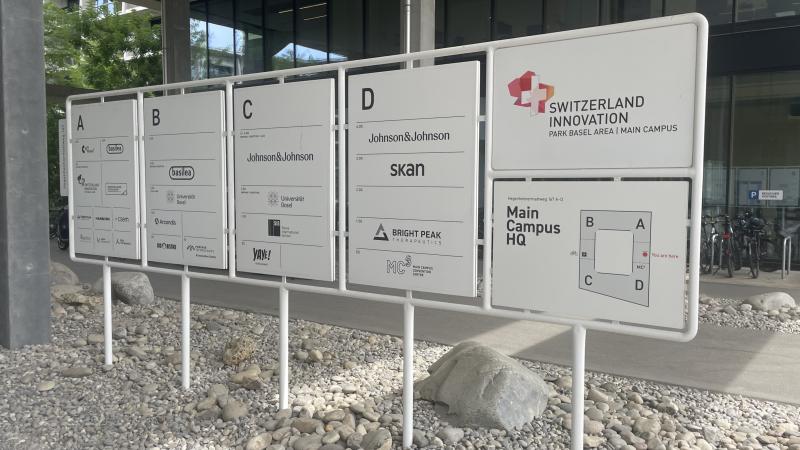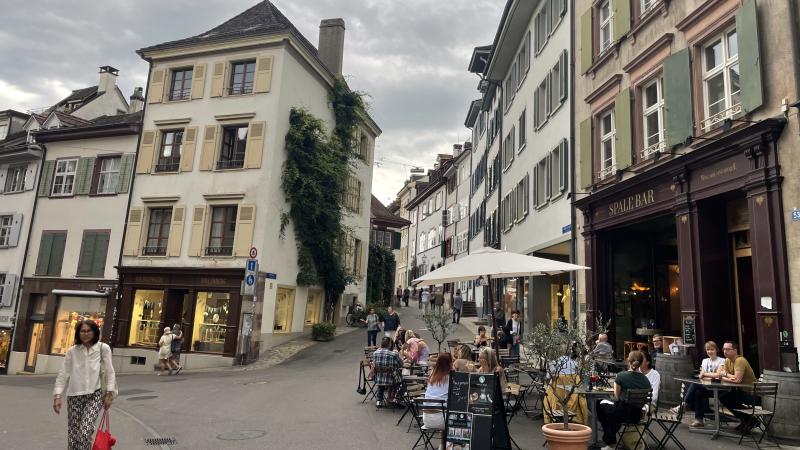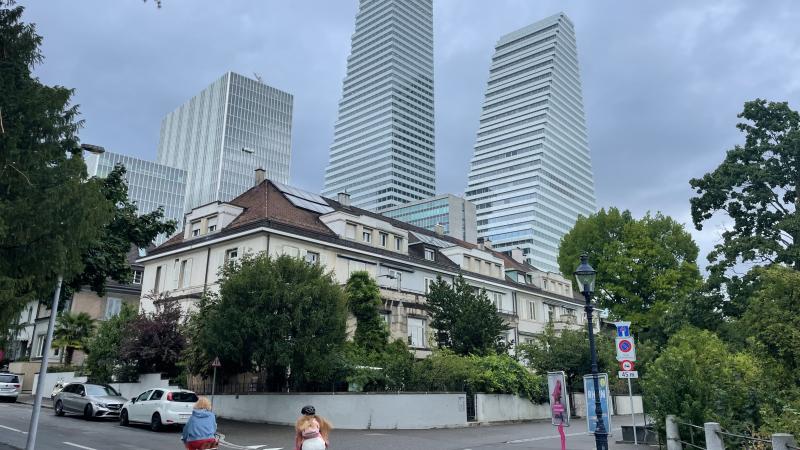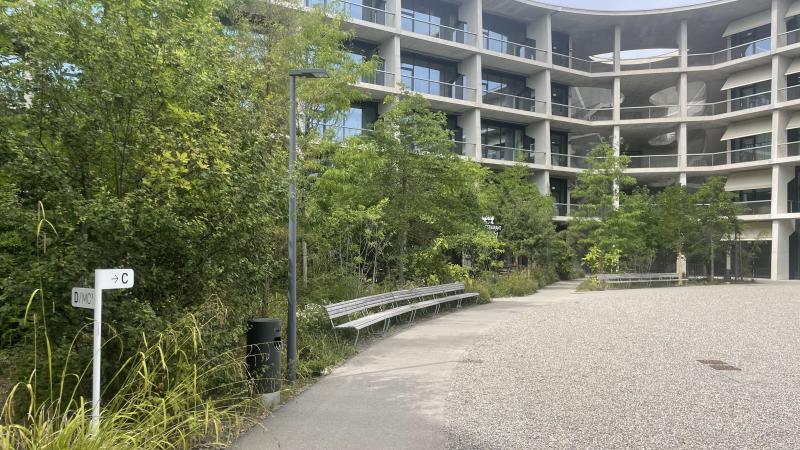When you think of biotech hubs, the first image that comes to mind may be the sleek waterfront offices of Boston Seaport or the scenic hills of San Francisco’s Bay Area. But a small city in Switzerland has been quietly raising its game in recent years.
Basel is already firmly established on the drug development map because of its unique position as a major European city that hosts two of the world’s biggest pharmas—Roche and Novartis. But under their large shadows, a bustling ecosystem of biotechs has been steadily growing.
In fact, around 800 life science companies now have a presence in the city, according to Christof Klöpper, Ph.D., CEO of Basel Area Business & Innovation (BABI), which promotes investment in the area. Those companies include CDMO giant Lonza, as well as U.S.-Chinese biopharma BeOne Medicines—the new name for BeiGene—which inaugurated its European headquarters in the city in 2022.
The University of Basel, which is known for its life sciences research, has helped secure the city’s regional reputation for medicines development that has, in turn, drawn more companies to the area. This has helped create a “small city that’s totally focused on life sciences,” Klöpper told Fierce Biotech in an interview.
“If you go to a bar, the chances are quite high that the person next to you is a life sciences person,” he said. Other factors that have helped draw companies from Europe and further afield are attractive tax incentives by the science-sympathetic regional government and the fact that “it's an attractive place to live and to do business,” Klöpper explained.
Where once a company like Johnson & Johnson would have swooped in to acquire an appetizing Basel-based biotech, now the Big Pharmas are more likely to “stay here and set up research divisions,” Klöpper explained.
In fact, J&J did just that—setting up offices at the Basel Innovation Hub, a new site on the outskirts of the city. The hub’s headquarters were inaugurated in 2022 and, since then, the likes of antibody-drug conjugate-focused Alentis Therapeutics, Versant Ventures-backed Bright Peak Therapeutics, and the Swiss Tropical and Public Health Institute have all moved in.

When Fierce met Klöpper inside the headquarters’ wood-paneled modern offices, it was clear that the hub district is still very much in development, with two large empty lots expected to be filled up by further new buildings by 2029.
He described the transformation of Basel from primarily hosting large pharma and chemical companies like Roche, Novartis and Sinochem-owned Syngenta into a home for hundreds of biotechs as a “corporate cluster that turned into an ecosystem,” much like Boston did over the past few decades.
The key to this ecosystem’s success are the employees. While they might start off being enticed to Basel by a job offer at a Big Pharma, the high quality of living means they are likely to stay and find their next role at another life sciences company in the city.
This is where Basel’s “strategic location” comes in, according to Klöpper. Tucked into a corner of north Switzerland that borders both France and Germany, biopharmas can have their pick of talent spread across three countries. In fact, Fierce spoke to one of several Roche employees who commute to work via bike each morning from a nearby village in Germany’s Black Forest.
“If an American company comes to Europe, it's quite complex to tackle the European market,” Klöpper explained. “Basel has quite a lot to offer to live with this complexity, because it's easy to hire people on the German or the French side.”

The city’s excellent transport links mean it’s also common for biotech staffers to take the one-hour train into work from Zurich, another hot spot for Swiss science. Maximilien Murone, Ph.D., a liaison officer at the Swiss Biotech Association, is keen to put Basel’s blossoming biotech role in the context of this wider national framework.
“I think what makes Switzerland more of a [biotech] hub as a nation is the fact that the country is quite small and everything is quite close,” Murone told Fierce. “So it doesn't take much time to go from one location in Zurich to Basel [or] Basel to west Switzerland.”
When it comes to securing money, biotechs have the option of regional government funds, as well as the Swiss Innovation Agency, which supports science-based startups with their R&D work. Murone also described Deep Tech Nation Switzerland—a non-profit set up to finance innovation—as “super important” for the national biotech funding landscape.
Last year, Swiss biotechs raised more than 2.5 billion Swiss francs ($3 billion) in 2024, a 22% increase on the previous year, according to the association’s most recent report. A total of 800 Swiss francs ($985 million) of this was raised by privately owned biotechs, led by Alentis’ 163 million franc ($200 million) series D and SixPeaks Bio’s $110 million from a combination of a series A round and a deal with AstraZeneca. Both Alentis and SixPeaks are based in Basel.
The city has a “long history” in the life sciences, Murone explained.
“Centuries ago, they were producing pigments to dye clothes and other things," he said. "And then from there they moved, slowly but surely, to developing medicines.”
A key pillar in this history is Roche. The company was founded in Basel in 1896 by Swiss businessman Fritz Hoffmann, whose experience of a devastating cholera outbreak in Germany led him to create one of the first companies specifically set up to manufacture scientifically researched pharmaceuticals.
Roche may now have a $260 billion market cap and employees spread across over 150 countries, but the company’s heart remains in Basel. In fact, the twin towers of Roche’s headquarters on the banks of the river Rhine are the tallest buildings in the city, dominating the skyline for miles around.

Speaking to Fierce in the company’s recently opened $1.4 billion research and development center within the Basel headquarters, Roche Pharma CEO Teresa Graham explained why it’s easy to entice international talent to move over.
“It’s an underrated city,” she said. “If people aren't familiar with Basel or Switzerland … we always encourage them to come. We say, ‘Bring your family, stay for a couple days.’ And pretty much everybody is sold by the end of it.”
Graham highlighted “really fantastic” international schools for children, “great communities for spouses,” an “amazing amount of green space” and hiking options in the nearby countryside as some of the key selling points.
One of Roche’s legacies for the area is the various biotechs that can trace their roots back to the Big Pharma. One of these is Basilea Pharmaceutica, an anti-infection company that spun off from Roche in 2000.
The biopharma remained in Roche’s shadow—literally—for 20 years before upping sticks and moving its offices to the Basel Innovation Hub when the site opened in 2022.
In the boardroom of Basilea’s headquarters, CEO David Veitch told Fierce that, over time, Basel has become a “real R&D hub.”
“Like attracts like,” Veitch explained. “So we came here, J&J came on the floor above us shortly afterwards, and then lots of smaller startups.”
For Basilea, which now employs around 170 people, the city’s livability combined with the local talent pool means “we never struggle with recruitment,” the CEO said. “You could put a LinkedIn advert up and you get 300 people per role.”
In fact, the density of life science companies around the city means the recruitment options “extend beyond just research and manufacturing” to “ancillary or supportive functions” like experienced biotech auditors and financial experts, Basilea’s Chief Financial Officer Adesh Kaul pointed out.

When asked what’s next for the Basel biotech scene, Veitch pointed to the construction work surrounding the company’s offices at the Innovation Hub.
“It's a building site, and there's plans to keep on building,” he said.
“It's got a way[s] to go to become a Silicon Valley or Boston,” he added. “But I think it's certainly a concentration area in Europe—and it's only going to grow.”
BABI CEO Klöpper cited Boston as having already gone on a similar trajectory of moving from an R&D hub to a self-supporting biotech ecosystem. Perhaps it’s time for Basel to shout about its own success more if it wants to raise its profile to match its U.S. peers?
“Communication-wise, I think we should be a bit more pushy,” Klöpper said. “It's not in the nature of the Swiss to advertise too strongly.”